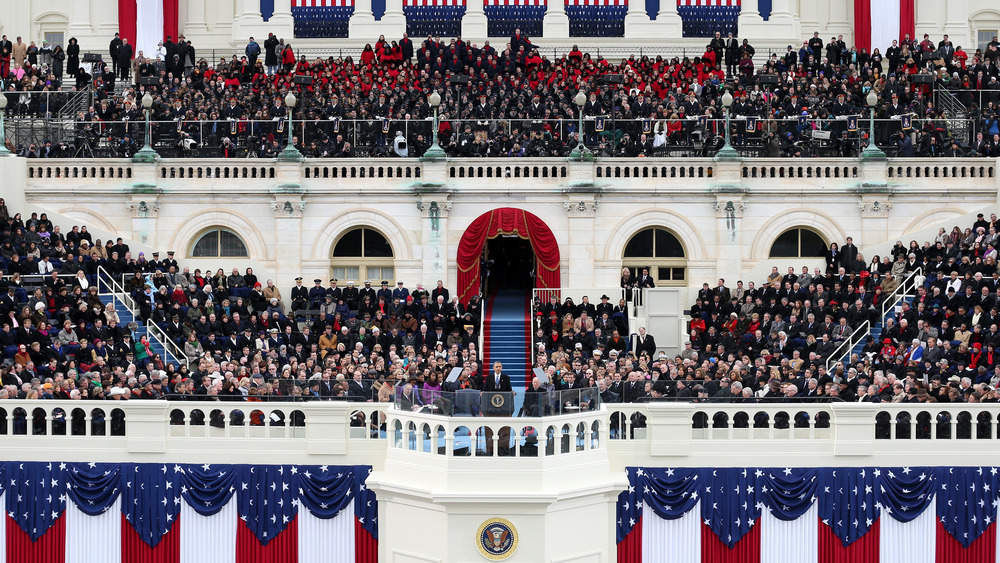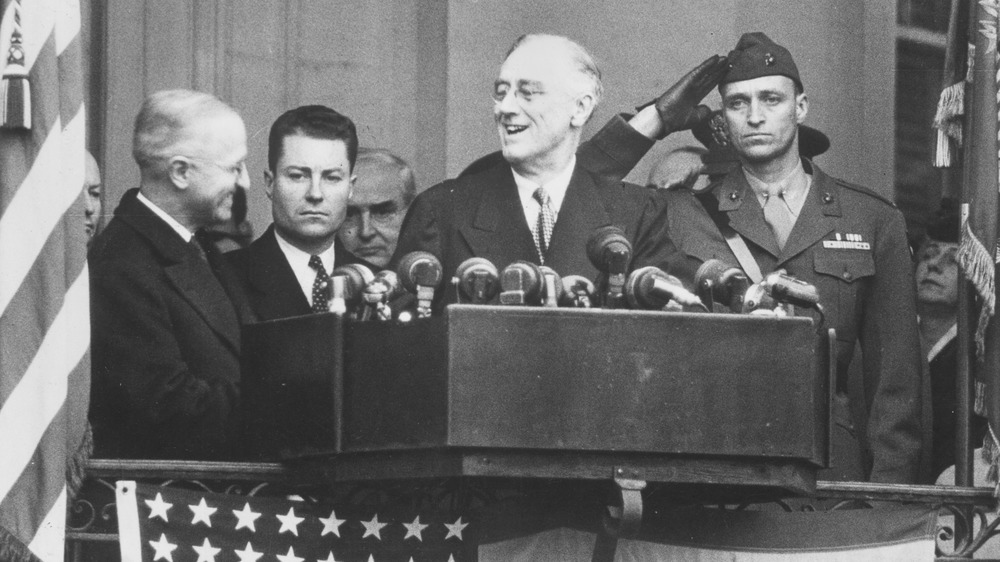The Real Reason Inauguration Day Is January 20
When Joseph R. Biden takes his oath as the 46th president of the United States, he will be continuing a tradition that's gone on for decades. His day of inauguration will be January 20, a date on which many other presidents also took their oaths. Inauguration Day, however, wasn't always on January 20.
History explains January 20 was chosen in 1933, after the ratification of the 20th Amendment. Before this, most presidents took their oaths of office on March 4. The nation's first president, George Washington, was also supposed to celebrate his presidency on March 4, but a terrible winter set him back by eight weeks. The first inauguration occurred on April 30, 1789.
After Washington stepped down, those who came after him took their oaths on March 4, a day chosen to give enough time for all votes to be counted and allow the new president to choose his cabinet and travel to Washington. This date also gave the sitting president a four-month lame-duck period; a period that meant commanders in chief sometimes couldn't act on problems (such as when states seceded from the United States).
We have technology to thank for the new inauguration date
However, by the 1930s, technology had sped up vote counting (per Boston.com). A four-month waiting period for a new president to take office started to become harmful. President Franklin D. Roosevelt couldn't start addressing the economy as the Great Depression began, for example.
So lawmakers decided to push to change the Constitution and move the nation's Inauguration Day. The lawmakers also moved up Congress' first meeting to January 3, allowing the Electoral College time to vote, and chose January 20 as the new Inauguration Day. The 20th Amendment, aka the "Lame Duck Amendment," was ratified by 1933. Unfortunately for Roosevelt, ratification came a little too late, and he spent the first few months of 1933 unable to stem the damage from the Great Depression. Of course, presidents who took office following a tragedy had to be sworn in before January. Lyndon B. Johnson was inaugurated in November following John F. Kennedy's assassination.
President-elect Biden and Vice President-elect Kamala Harris' inauguration on January 20 will look slightly different from previous ones. It will be limited to uphold social distancing guidelines and will be live-streamed. No word yet if the current president will sit it out.

